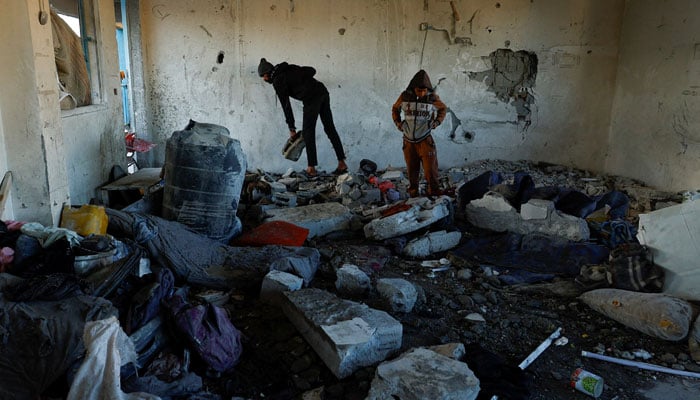Travel
Sindh’s water share
字号+ Author:Smart News Source:Business 2025-01-14 03:26:33 I want to comment(0)
FOR the people of Sindh, the Indus is more than just a river; it is the lifeblood that flows through their homes, their fields, and their hearts, supplying nourish-ment and survival in ways nothing else can. However, the construction of additional canals on the Indus threatens the environment and the livelihoods of the vulnerable people of Sindh. These projects, being executed without proper environmental assessments or community consultation, could mean destruction for the province. For centuries, the Indus has shaped the cultural, economic and agricultural lands of Sindh. However, the continued diversion of its waters through the construction of new canals poses an alarming threat. These canals, intended to expand agricultural land and feeding development projects in other regions, are depleting the already scarce flow of river. The repercussions are grave: increasing salinity in the soil, destruction of fertile farmland, and escalating water scarcity that affects both humans and wildlife. Surpassing environmental degradation, these projects also endanger the social structure of Sindh. Farmers, fishermen and rural communities that rely on the river for their sustenance face displacement and economic hardship. The domino effects of this are felt the hardest by women and children, who are unduly impacted by environmental crises. Access to clean water becomes scarcer, food insecurity worsens, and health risks increase. These are the factors that deepen the already substantial gender and economic inequalities in the province. Research has shown that lower riparian regions of Sindh are already suffering from reduced water flows, leading to the intrusion of seawater, which destroys agricultural land and freshwater supplies. The construction of more canals will exacerbate this situation, further endangering both the environment and the livelihoods of millions. We cannot take lightly the critically serious consequences of uncontrolled canal expansion that include soil erosion, habitat destruction, and irreversible harm to ecosystems that have thrived for millennia. It is time for the policymakers sitting in the federal capital to recognise that short-term gains in one sector cannot justify the long-term losses for the people and ecology of an entire province. The provincial and federal governments should immediately stop any further canal construction on the Indus River. We must establish sustainable water management, ensure that local commu- nities are involved in decision-making processes, and enforce more stringent environmental regulations that protect this critical natural resource. An immediate action is necessary, or we will regret it later. We ought to protect the Indus River together for the sake of our future generations, our economy, and, indeed, for our ecological balance.
1.This site adheres to industry standards, and any reposted articles will clearly indicate the author and source;
 Related Articles
Related Articles-
‘General Hospital’ actress Leslie Charleson dies at 79
2025-01-14 03:14
-
Outgoing President Biden to deliver final address on Wednesday
2025-01-14 02:48
-
Sarfaraz Ahmed parts ways with Quetta Gladiators
2025-01-14 01:51
-
Draya Michele gets slammed for advertising air purifier amid L.A. fires
2025-01-14 00:55
 User Reviews
User Reviews Recommended Reads
Recommended Reads Hot Information
Hot Information- Power discipline
- Verdict delayed for third time in £190m case against Imran, Bushra Bibi
- Meghan Markle Instagram account at risk after scathing statement
- FBR to procure more than 1,000 new cars
- Musk's ties with Trump do not threaten Bezos
- Justin Bieber’s surprising revelations about music comeback in 2025
- ‘Today’ after Hoda Kotb’s exit, with Savannah Guthrie, Craig Melvin
- Spencer Pratt requests to stream Heidi Montag’s 2010 album after home loss in LA fires
- Blake Lively in another feud with Hugh Jackman's ex after Baldoni case
 Abont US
Abont US
Follow our WhatasApp account to stay updated with the latest exciting content













